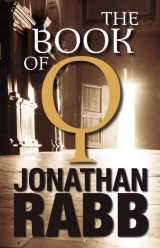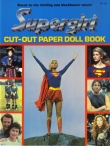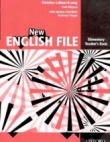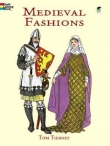
Текст книги "The Book of Q"
Автор книги: Jonathan Rabb
Жанр:
Триллеры
сообщить о нарушении
Текущая страница: 24 (всего у книги 28 страниц)
“What are we looking for?” the boy asked, forced to bring his skirt up over his knees so as to avoid tripping over it.
“Not really sure,” said Pearse.
Ivo nodded and continued to scrutinize the stones.
“It might be something you’ve seen in your book,” Pearse said, busy with his own investigation.
Again, Ivo nodded, now on hands and knees, crawling in the opposite direction around the fountain.
“He’s getting filthy,” said Petra.
As one, Ivo and Pearse looked up at her, the expressions of annoyance identical.
“Wonderful,” she said as she sat on the fountain’s ledge. “Now I get it in stereo.”
Crawling to within a few feet of her, Pearse located the date of the fountain’s completion: 1521. Ribadeneyra had evidently been here for its construction, further confirmation that they were in the right place. He was just moving past her when Ivo popped his head up from the other side.
“I found it! I found it!” His reaction was enough to warrant a momentary break in the soccer match.
Pearse jumped up and moved around to him. “Great, great … but remember, we have to be quiet.”
“But I found it,” Ivo answered, no less excited.
Again, Pearse crouched down. Immediately, he understood why Ivo had called him over. Where the rest of the stones along the fountain’s base were rectangular, Ivo had found one made up of two distinct triangular pieces. More than that, each triangle had a lighter and darker side, hardly visible from a distance, but there nonetheless.
Not only had Ribadeneyra been around for its construction, he’d obviously taken part in the stonework. Pearse glanced up at the figure again. They really were a very clever bunch.
“Excellent,” he said, shooting a finger at Ivo and winking. Ivo’s eyes lit up; he returned the gesture, then gave a little giggle as he looked over at his mother.
“See, I told you Americans do that.”
“Yes, you did,” she said, then looked at Pearse in mock appreciation.
Her reaction was lost on him as he was already busy with the stone. Placing his hand on it, he tried to move it. No chance. He pulled back and stared at the surrounding area. Ivo immediately placed his hand on the stone and pressed against it. He, too, shook his head and pulled back.
“What do you think?” said Pearse, still trying to locate something else on the stone face that might hint at a way through. No acrostics, no levers.
Ivo shrugged and again pressed at the stone. “It’s pretty hard.”
“Yup,” Pearse said, his eyes wandering along the strips of mortar. “Pretty hard.” He began to feel around the surrounding stones. Not so much as a crack. Remarkable craftsmanship, he thought, except that, as he now stared at it from ground level, Pearse saw that the fountain leaned a few inches to one side. Or if not leaned, then at least sat on an uneven foundation. The closer in he looked, however, the more it struck him that the stones had just settled over time. Which meant that whatever Ribadeneyra had left for the “disciple” to discover might simply have gotten buried as sections of the fountain had sunk deeper into the ground.
Taking that as his cue, Pearse began to run his fingers along the spot where stone met dirt, the soil coming away with a bit of effort. Within a minute, he’d created a little gully, enough to use a small rock for digging. Ivo, of course, had begun to help with a rock of his own. Meanwhile, Petra was keeping an eye on the passageway into the courtyard; she was also monitoring the soccer players, each of whom was becoming more and more interested in the group by the fountain.
“You have an audience,” she said to Pearse under her breath.
He glanced over at the children, then turned back. “Hopefully, it’ll be a short show.”
A few more inches, and he began to make out tiny markings chiseled into the stone. Brushing aside the excess dirt-but with no angle to read it-he began to trace his fingers across the symbols. It took him nearly a minute to figure out what they were. Letters. Four of them. Greek-???? “earth.”
Not terribly helpful, but at least it was a start. Another few inches, and a second word. This one, three letters. His old friend??? “light.”
Pearse realized that Ribadeneyra had returned to the original “Perfect Light” scroll for his final message. Once again, everything was flipped on its head. Earth above light, the mundane over the sacred. And, as with everything having to do with the Manichaeans, he was meant to take it literally. The earth was covering the light.
He continued to dig.
By now, the soccer quartet had moved closer, still keeping their distance, though with the ball wedged under an arm, the sure sign that their interests had shifted. The biggest of them, a girl of maybe twelve, tried to peer past Pearse to see what he was doing. “Did you lose something?” she asked.
Pearse looked over his shoulder, then at Petra. Before he could come up with an answer, she said, “My husband’s a stonemason. He wants to see what kind of stones were used on the fountain.”
The girl nodded and continued to stare. After another few minutes, she asked, “Is there something special about our fountain?”
“It’s very old,” said Pearse, repositioning himself so as to dig wider and deeper. “Strong stone.”
Again the girl nodded. It seemed enough to satisfy her curiosity. The children returned to the wall, the digging once again accompanied by the thump-thumping of the ball.
“Did you hear that, Ivo?” Pearse said, pulling up another handful of loosened soil. “I’m Rade the Mason of the great Turkish Empire.”
Ivo giggled, more eager to get his hands as mud-filled as possible than to remove the dirt. “‘So went the wood and the hay and stables,’” he sang, “‘the inn tumbled down by the Grand Mehmed Pasha.’”
“‘Say good-bye to the wood and the hay and the stables,’” Pearse answered, “‘when the inn tumbles down-’”
“Noooo.” Ivo laughed. “You got it wrong.” And then in a tone he could have borrowed only from his mother, he said dismissively, “You Americans.”
Pearse stopped digging. He began to laugh as he looked up at Petra. “I wonder where he heard that?”
She couldn’t help but smile. “I wonder.” She reached over and planted a kiss on Ivo’s head, a quick muddy paw up to discourage her.
“Mommy, we’re digging. You can’t interrupt our job. Me and Ian. It’s very important.”
“I know. Very important.” Another kiss.
“Mommy!”
“Okay, okay. I’ll let you get back to your job.” She glanced at Pearse, then turned to the courtyard entryway.
How different from the last time he’d tried to unearth the “Hodoporia,” thought Pearse. No children’s songs or soccer balls. No Petra in the Vault of the Paraclete. The change in venue seemed somehow appropriate, less of Mani and more of the stonemason. Or carpenter. Either would have done.
The hole was nearly a foot deep when he uncovered what felt like an iron bar sticking out from the base of the fountain. He traced it to the wall. There, he discovered a small indentation in the stone, one that extended some four inches up, and which was exactly the same width as the bar. It was caked with mud. He chiseled into the dirt and found that the slot went deep enough into the stone for him to place his fingers fully inside of it. More than that, he found that the bar continued on through the slot, into a hollow in the belly of the fountain.
He had simply cleaned out the groove along which the bar could be moved.
His first inclination was to pull up. After all, what else would the slot be there for? Then again, these were the Manichaeans. Up meant down. Even so, he reached in and tried pulling up. It wouldn’t budge. After the third attempt, he decided to continue digging below the bar. There, too, he found a groove, the continuation of the slot heading straight down. Reaching underneath the iron handle, he did his best to clear it out. With enough room to get his fingers around the handle, and with the now eight-inch groove unblocked, he turned to Ivo. “Okay, watch out,” he said, repositioning himself so as to gain as much leverage as he could. Ivo moved to the side.
Going with his first instincts, Pearse put his full weight onto the bar and began to push down. It took several seconds of constant pressure to make it move, but when it did, he realized why the slot ran in both directions: the handle inched downward on an angle toward the wall. The other end of the bar-the one extending into the hollow-was moving up, filling in the upper groove like a counterweight. He had no idea how the mechanism worked, nor did he care as he saw the lower of the two triangular pieces begin to dislodge from its partner. It was forming a gap in the fountain’s base.
“Look! Look!” said Ivo.
Pearse nodded and again pushed down with all his weight. Another quarter of an inch.
Ivo brought his hands to his face, his muddy little fingers shaking with anticipation. Petra did her best to keep them out of his mouth. Ivo at once latched onto her arms, eyes fixed on the stone, his feet hopping every time there was even a hint of movement. “Look, Mommy! Look!”
“I see it, sweetie.” She tried to rub the mud from his hands with her own.
On the fourth try, the stone finally gave way, the bar rotating flat into the slot. Pearse pulled his arm up from the hole and sat, a little winded from the exertion. As he looked into Ivo’s eyes, he felt a faint tremor of anticipation, a distant echo of what he had known in Photinus.
The “Hodoporia” was here.
He reached his hand into the gap and blindly groped his way through. There was an odd feel to the air, somehow heavier, yet with none of the dampness he expected. The few times his fingers rubbed against the stone, there, too, he was surprised by the texture, dry and cold, flawlessly smooth, no signs of decay. He attributed it to the strange mechanism, the bar and counterweight evidently having produced an almost perfectly insulated space. With his arm halfway down the opening, he hit on something metallic with rough iron edges, the feel of tiny bolts running under his fingertips. Another box.
Ambivalence or not, his heart kicked into high gear.
He reached his fingers around the side of the box and began to lift. He half-expected it to be tied down, one more trick to unravel before bringing it into the light. Instead, it came up easily. Angling it through the opening, he set it down at his side.
The box was identical to the one Ribadeneyra had used on Athos. Same size, same meaningless latch. Pearse looked up at Ivo and Petra.
“Well, here it is,” he said. Channeling his nervous energy, he reached back into the hole and pulled up on the bar. The two stones came back together. He then began to push the dirt back in.
Ivo quickly knelt down, the same chocolate-hopeful expression spread across his face as he offered to help. “It’s pretty old, isn’t it?” he said.
“Pretty old,” answered Pearse, tamping down the last of the soil. He brushed away as much of the dirt on his hands as he could, then picked up the box and sat on the lip of the fountain. Ivo stood and edged in close to his side, his eyes transfixed on the prize now in Pearse’s lap.
The mud was still thick under his nails as Pearse struggled with the latch. It finally gave way, the same velvet and gold coins waiting inside. This time, though, the glass dome was considerably bigger. It had to be; a scroll, not a booklet, lay underneath. Like its “Perfect Light” counterpart, it was bound in leather, two tie-strings holding it together. He was about to separate the dome from the velvet, when he saw the state of his hands. He turned to Petra.
“I probably shouldn’t touch it,” he said. “You’re going to have to open it up.”
She hesitated.
“I could do it,” piped in Ivo, ready to grab the dome.
Petra moved in quickly. “That’s okay, sweetie.” She reached over and placed the box on her lap. With a nod of encouragement from Pearse, she gently pulled the dome from its sealant. She looked at him.
“Go ahead,” he said, a strange tingling now in his throat.
She placed her hand on the scroll and immediately pulled it away. “It’s … oily.”
The moisture of the leather… Pearse could only marvel at Ribadeneyra’s ingenuity. He’d created enough of a vacuum both inside the fountain and the dome to keep the scroll in relatively good condition.
“That’s a good thing,” he said. “Try untying the straps. Gently.”
She started to touch them, then stopped. “You’re sure you don’t want to do this yourself?”
He smiled. “Did I leave my sink next to your sixteenth-century map?”
“I just think-wouldn’t it be smarter if you did this?”
As much as he now desperately wanted to hold it, he knew he couldn’t take the risk of harming the scroll. “I think we should see what’s inside.”
Again she hesitated. “All right.” She deftly inched the knot apart, then laid the strands at the side.
“Now peel back the binding. If you feel anything start to give, stop.”
She did as she was told, rolling back the first inch of leather. A strip of vellum appeared, straw-colored, gritty even to look at. She turned to Pearse. He nodded; she rolled back a bit more.
The edge of a separate sheet of parchment, distinct from the scroll itself, suddenly appeared between leather and vellum.
“What do I do with that?” she asked.
For a brief moment, Pearse entertained the frightening thought that perhaps they’d uncovered the next clue on the wild-goose chase. Unwilling to indulge it for more than a few seconds, he said, “Just keep rolling it back.”
Another few turns, and she had unrolled enough so that the separate sheet could be pulled out easily. With a little encouragement she did just that, holding it out in front of him so he could read it.
“It’s from Ribadeneyra,” he said as he read the Latin. “April 1521. ‘Take the gold … leave the scroll’”-his eyes racing along-“‘let this be an act of contrition….’” More nodding as he explained. “It’s the same thing he did on Photinus. Except this time he finishes up the story.” Paraphrasing as he went, Pearse read, “He got here in 1520…. He knew he wasn’t well…. Mani found him this spot to die…. ‘Praise be to Mani,’ so forth and so on.” He nodded for her to flip the sheet over. “That’s interesting.”
“What?”
“It says he helped design the fountain. He even laid some of the stonework….” Reading several lines, Pearse said nothing, his eyebrows arching as he scanned the text. “Wow.
That’s why,” he finally said. “That’s why what?” she asked.
“You really were very clever, weren’t you?” he said to the sheet, disregarding her question. “A Manichaean through and through.”
“What?” she asked again.
He looked over at her. “Ribadeneyra. He explains why we found those pieces of parchment eight years ago in Slitna.” Before she could ask, he continued. “According to this, before he died, he sent a handful of men out with packets of pressed vellum, each filled with messages written in Eastern Syriac, not Latin. Something about the purity of the original tongue.”
“Eastern what?”
“It’s not important. The point is, the men were told to hide the pieces in churches throughout Europe. That’s what we found. Each of the packets had a clue to where the ‘Perfect Light’ scroll was hidden. In other words, he basically had them replant the clues that he’d found himself during his twenty-year search. He’d already reburied the ‘Perfect Light’ scroll back in Istanbul before heading west, and he was banking on the fact that someone, at some point in time-depending on Mani’s will-would piece the packets together and find his way to the ‘Perfect Light.’”
“The scroll your monk friend gave you in Rome.”
“Cesare. Exactly. His friend, a man named Ruini, actually found the ‘Perfect Light’ scroll in Istanbul. He then gave it to Cesare, who gave it to me. The ‘Perfect Light’ was what lead me to Photinus, where, instead of finding the real prize, I found Ribadeneyra’s own little book-the one with all the cryptograms-which was simply meant to add one more step to the hunt for the ever-elusive ‘Hagia Hodoporia.’”
“This,” she said, holding up the recently unearthed scroll.
“Right. Before he died, Ribadeneyra hid the ‘Hodoporia’ inside this fountain, and then sent his last helper back to Photinus to hide the little book of cryptograms in the Vault of the Paraclete. End of story.”
“Cautious man,” she said.
“Or terribly devout. The two seem to go hand in hand with these people. At least when they’re dealing with their ‘Hodoporia.’”
She thought about it, then said, “Don’t you think it’s a little strange that you happened to be there when one of those packets was found outside of Slitna, and now you’re here?”
Pearse looked up from the page. It took him a moment to respond. “We gave those pages to Salko, didn’t we?”
She nodded.
Again, he waited. He turned to her. “I can’t worry about that now. I need to find out what this thing is. There’s a woman in Rome who’s depending on that.”
She placed the sheet back in the box, then looked at him. “Things have gotten a little more complicated, I think.” She held his gaze, then looked past him to Ivo, whose head was resting up against Pearse’s shoulder. “How are you doing, sweetie? You holding up okay?”
Ivo nodded quickly. He then looked at Pearse. “How are you doing, Ian?”
“Fine, Ivi. Fine.”
Ivo pulled in even closer, and, in a whisper, said, “Can I have one of those gold coins?”
Pearse smiled. “Sure. Take as many as you want.”
Petra reached into the box and handed him several of the coins. “Why don’t you go play with them over there, sweetie. We still need to read some more of this.”
Ivo skipped off, hands cupped around the coins. He picked a spot about twenty feet from them and sat down.
Petra continued to watch him. “Much more complicated.”
Pearse watched the boy, as well. And he nodded.
Without warning the sound of an explosion rocked the courtyard, followed by a violent tremor. Ivo quickly got to his feet. At the same instant, the children playing soccer darted into the middle of the courtyard and lay flat on the ground. Within seconds, others were emerging from the buildings-the old and the young-the courtyard’s center their focus, as well. Petra handed Pearse the box and ran toward Ivo, who had already run out into the open area and was now lying facedown with the rest. Pearse followed, all of them flat on the ground when the sound of sirens began to blare.
“That didn’t sound like an artillery shot,” he said.
“It wasn’t,” she answered.
“Then why are we all lying out in the open like this?”
She looked over at him. “Because some habits die hard, Ian.”
He remembered his days in Slitna, the first rule of survival: get out of the buildings. He peered around at the old women and children, all of them facedown in the grass and dirt. Slowly, the heads began to rise. Each one listened intently for the sound of another blast. As the minutes passed and the sirens grew louder, they began to get to their feet. En masse, they headed for the passageway.
Pearse, Petra, and Ivo fell in behind, close enough to hear snippets of conversations, the word crkvathe most frequent.
Pearse leaned into Petra as they walked. “What church are they talking about?”
“Your guess is as good as mine.”
The maze of alleyways took them back toward the marketplace, more and more people on the streets as they neared the open area. Pearse felt the heat of the explosion before he saw it, that once-familiar tang of gasoline and sulfur. With the rest, he stopped at the edge of the marketplace, far enough out, though, to see a building rising in flames no more than a hundred yards from them.
The scene was mayhem, people lying in the street, two cars on their sides, undercarriages on fire. Storefront glass lay scattered everywhere; a few larger shards had landed with such force that they looked liked great crystal teeth imbedded in the pavement. Nothing was more harrowing, though, than the sight of the bloodied survivors screaming their way down the street, one woman carrying a child who was clearly no longer alive. Others had raced out to help them, some from an unseen ambulance corps, still more from the growing crowds, the area a haze of zigzagging bodies.
Pearse pushed his way through, unaware that he was still toting the iron box in his hands. He never felt the tug from Petra as he raced out and headed for the first person he could reach.
She was a woman in her twenties, seated almost serenely on the ground, staring mindlessly at her leg. Somehow, something metal had twisted its way into her calf. Pearse pulled off his coat and draped it around her shoulders; she didn’t seem to notice he was there. He looked up to see if there was anyone even remotely medical nearby, but there were too many people to make out anything clearly.
“And the fish,” she said, now looking up at him. “Before he runs out of it.”
Pearse looked down. There was hardly any focus in her eyes. He nodded. “You’re going to be fine,” he said.
He noticed an area across the way where they were beginning to bring the wounded. He looked back at the woman. “I’m going to pick you up now. Is that all right?”
The woman said nothing.
As carefully as he could, he placed one arm under her leg, the other around her back, and began to lift. At once, she started screaming. Moving as quickly as he could across the street, he arrived at the makeshift triage area, a voice somewhere in front of him telling him where to put her. Pearse set her down.
“That’s great. Thank you. Now you need to clear this area,” the man said. “No more heroics today.”
Pearse began to answer, but the man was gone.
It was then that he realized he had left the box in the middle of the street. He spun around to try to find it, only to see Petra and Ivo standing with it. She no longer had the “baby”; Ivo had lost his kerchief. More than that, his skirt remained up around his waist, his muddied pants in full view. Pearse started toward them. He was barely out into the street when he saw a man in a dark suit converging on them.
Pearse began to run. Ducking through the mayhem, he watched as Petra began to make her way into the crowds at the edge of the marketplace, the black box in hand. It was clear from her body language that she was fully aware of the man trailing after her. She and Ivo slipped into the mass of people, the man-speaking into a radio-ten yards behind them. Within seconds, he, too, was moving through the crowds. Pearse fell in behind all three.
At once, he realized Petra was trying to use the crowd to get herself around the perimeter of the marketplace. With Ivo in tow, though, she had no hope of losing the man; the spacing between them began to close. Pearse drew nearer as well, the man so intent on his prey that he never considered the possibility that he might have a tail of his own. Only once did Petra look back, Pearse certain that she had seen him. He wasn’t sure if it would make a difference, but at least now she knew he was there. How long Ivo could keep up with her was another question entirely.
When she broke away and headed down a side street, Pearse guessed she was banking on his help.
Out in the open again, the gaps separating all of them widened, the man unwilling as yet to move in for the kill. It might have had something to do with his radio, thought Pearse. He watched as the man began to shake it rather than speak into it. The explosion had created a communications overload. Maybe it was interfering with the Vatican frequency? No backup. No reason to draw in too close. Whatever the cause, the man was holding back as he placed the radio in his pocket.
Pearse made sure to keep his distance as well, hugging to the sides of buildings, once or twice losing sight of Petra, who continued, with Ivo, to duck and weave through the alleys and streets. Everything was deserted, anyone who had ventured out by now at the marketplace, the sounds of it all receding farther and farther into the background. Pearse heard nothing but the near-silent patter of steps up ahead of him. He kept his focus on the man, not knowing if he should run at him or stay back. A fumbled attack would only leave Petra and Ivo more vulnerable. He had to trust that she knew what she was doing.
Entering a part of town he thought he recognized, Pearse saw her glance back again. It was clear she had meant for the man to see her looking at him. Pearse, as well. She immediately darted down another side street. Pearse watched as the man pulled a gun from his jacket and followed.
It was now or never. Still close to the buildings, he waited for the man to make the turn. He then sprinted out after him, careening around the corner.
In an instant, Pearse saw what Petra had contrived. She was standing twenty feet from the man, Ivo tucked in behind her, the box held out at arm’s length. The man had stopped, the gun aimed at her.
But it was only for an instant. Before the man could react, Pearse came crashing into his back, the collision propelling them both to the ground. Still on top of him, Pearse drove his fist into the man’s neck, rote responses from a part of his mind he hadn’t tapped into for years. With his other hand, he grabbed the man’s hair and pummeled his skull into the cobblestone, the second thrust enough to leave the body limp.
Trying to catch his breath, Pearse rolled off the man and stared up at the sky.
Only then did he hear the screams from Ivo. He immediately flipped over and saw Petra sitting up against one of the buildings, Ivo clutching at her, his face contorted in tears.
Pearse struggled to his feet. He raced toward them. Dropping down at her side, he saw her hands holding an area to the left side of her abdomen. They were stained red.
“It’s okay, Ivi. It’s okay. It’s not so bad,” she said breathing through the pain. She looked up at Pearse. “It went off when you jumped him.”
Pearse hadn’t even heard the gun discharge. All thought seemed to vanish. He pulled off his shirt and placed it over the wound. “We need to get you to-”
“I know.”
“I need to find a car.”
Petra nodded her head toward the next street. “It’s down there.”
Pearse looked up. That’s why it all looked so familiar. That’s why she had brought them back here. He jumped to his feet and started running. “Stay with Mommy, Ivo. I’ll be right back.”
He tore down the side street, the van no more than thirty yards from him. Two minutes later, he was lifting her from the pavement, laying her flat in the back of the van. Ivo climbed in by her side.
“So that’s how you take out a catcher?” she said, the look of pain no less intense on her face.
“Something like that.” He found a blanket and placed it under her head.
“Did he drop the ball?”
Pearse looked into her eyes, his hand brushing back the hair from her forehead. “Yeah. He dropped it.”
She tried to smile. “The main road. Take a right. The hospital’s about a half mile down.”
Pearse shut the back door, picked up the box, and got in behind the wheel. He slid open the partition. “It’s going to be okay. We’ll be there in five minutes.”
As he pulled the car around, he heard Ivo singing to her, his tiny voice echoing from the back.
No one had bothered to ask about a bullet wound. The hospital had been too overrun to quibble about the details. They had been nice enough to find him a shirt.
It was two hours since they’d taken Petra-Pearse and Ivo left to sit with the rest of the shell-shocked, waiting for word. Ivo, cradled on his lap, had alternated between sleep and tears, his first half hour without her almost frantic. He had started by punching at Pearse, blaming him for everything, until his little body had given out. The first nap, followed by complete disorientation, more hysteria, a second breaking point, then a third. Finally, he had simply sat, eyes staring out blankly. Pearse had tried to talk to him, but it had made no difference.
One constant: the ball he clutched in his hand.
From conversations around him, Pearse had discovered that the explosion hadn’t destroyed a church; it had blown up the Velika Dzamija, the Great Mosque. Unjust retribution, he had been told. Only when he’d moved to the television in the corner of the waiting area had he understood what they’d meant. The three churches yesterday had been just the beginning. News reports brought him up-to-date on the atrocities occurring across Europe and beyond. And, of course, the Vatican. The mosque had simply been one instance of Christian backlash-at least that was the way Bosnian television was interpreting it. They were expecting a good deal more. The Middle East was already up in arms about the accusations. The Vatican was calling for all Christians-all-to come together in peace. The battle lines were being drawn.
And all to bring about the one true and holy church. The thought sickened him.
A doctor approached. “You brought in the woman with the abdominal wound?” he asked.
Pearse stood, petrified by what he might hear next.
“She’ll be fine,” he said. “The bullet went straight through her side, no vital organs, but she obviously needs to stay with us for a day or so. You can see her now.”
Pearse picked up Ivo and followed the doctor along a series of corridors before coming to a room with eight beds. Petra lay in the one nearest the window. The doctor nodded toward her, then headed out. Before Pearse could take a step, Ivo had dropped down and was racing to her side. He lay his head next to hers on the pillow.
She looked remarkably serene given what she had just been through.
“Hey, Ivi,” she said, still well drugged. She brought her hand up and began to stroke his hair. “Mommy’s going to be okay.”
Pearse pulled a chair over and sat down. He didn’t know what to say.
“I’ve had worse,” she said, her smile weak, Ivo now clutching at her arm.
“I didn’t think the gun-”
“Neither did I,” she said. “Just unlucky.” She stared over at him. “I guess you could tell me you’re sorry.” Again the smile.
“I guess I could.”
Ivo started to cry.
“Mommy’s okay, sweet pea. We’re just going to have to be here for a few days. The doctor says you can sleep right next to me. They’re going to bring in a cot, and blankets. How about that?”
Ivo kissed her cheek. “Okay.”
She looked back at Pearse. She took his hand.








